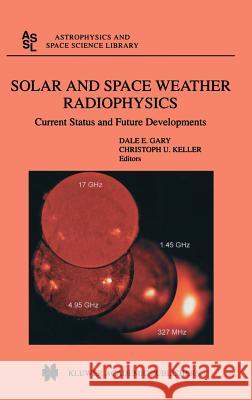Solar and Space Weather Radiophysics: Current Status and Future Developments » książka
Solar and Space Weather Radiophysics: Current Status and Future Developments
ISBN-13: 9781402028137 / Angielski / Twarda / 2004 / 400 str.
This volume is the outgrowth of several international meetings to discuss a vision for the future of solar radio physics: the development of a new radio instrument. From these discussions, the concept for the Frequency Agile Solar Radiotelescope (FASR) was born. Most of the chapters of this book are based oninvitedtalksattheFASRScienceWorkshop, heldinGreenbank, WVinMay 2002, and a special session on Solar and Space Weather Radiophysics held at the 200th American Astronomical Society meeting held in Albuquerque, NM in June 2002. Although many of the chapters deal with topics of interest in planning for FASR, other topics in Solar and Space Weather Radiophysics, such as solar radar and interplanetary scintillation, are covered to round out the discipline. The authors have been asked to write with a tutorial approach, to make the book useful to graduate students and scientists new to radio physics. This book is more than a compilation of FASR science topics. The FASR instrument concept is so revolutionary by extending capability by an order of magnitude in several dimensions at once (frequency coverage, spatial reso- tion, dynamicrange, timeresolution, polarizationprecision) thatitchallenges scientiststothinkinnewways. Theauthorsofthefollowingchaptershavebeen taskednotonlywithreviewingthecurrentstateofthe?eld, butalsowithlooking to the future and imagining what is possible. Radio emission is extremely complex because it is generated so readily, and every imaginable plasma parameter affects it. This is both its great strength and its weakness











